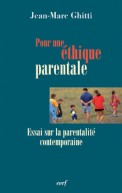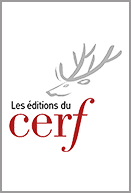
Appel à une réforme de la justice familiale
Collection Recherches morales
400 pages - févr. 2010
38,50€
Spécialiste des rapports de crise entre la famille et la société, Jean-Marc Ghitti analyse, en pédagogue du social, par quelle histoire du droit et de l'institution judiciaire la famille au XXIe siècle se trouve-t-elle tellement judiciarisée. Un contexte culturel et événementiel est à considérer : quelle place occupe le droit dans une société occidentalisée ? Le service rendu par le droit peut être fort utile, mais le juridisme paralyse et déshumanise. Qui s'étonnerait que le juridisme et l'humanisme soient incompatibles ? Il est vrai que les conflits dans la famille, ainsi qu'entre celle-ci et la société, sont nombreux. Aussi, des voies de résolution de conflits, des procédures d'indemnisation-réparation, des tâches de recherche d'une meilleure justice sont à perfectionner, mais selon quels critères, selon quelles priorités et finalités ? Les valeurs de la démocratie et de l'éthique ont-elles leur place dans les procédures de tentatives de règlement des conflits familiaux ? Les procédures juridiques instaurées ne reposent généralement pas sur une conception humaniste de l'homme, de la vie en famille ni plus largement du vivre en société. Nombre de procédures régaliennes résistent face aux interpellations préconisant une démocratisation. L'auteur met en évidence les méfaits que cette justice d'État non humaniste produit dans les existences et les liens familiaux. Il n'omet pas de faire des propositions, par exemple en direction des tribunaux, afin qu'ils s'ouvrent à l'esprit démocratique. En effet, des alternatives existent, par exemple quand la manière de juger évolue en aspirant à une justice plus humanisante pour le bien des personnes.
--
A specialist of crises in relations between families and society, Jean-Marc Ghitti poses the question of how the 21st century family became so bogged down with legalities. A skilled teacher of social realities, he examines the history of law and the juridical institution to discover how this situation came about. The cultural and factual context must be considered: what role does law play in a Westernised society? Law may have rendered great service to society, but legalism paralyses and dehumanizes. Who would be surprised to learn that legalism and humanism are incompatible? It is true that conflicts within the family, and between families and society, are numerous. The means of resolving them; procedures of compensation/reparation; the search for a better justice system: all these things must be improved, but according to what criteria, what priorities and goals? Do the values of democracy and ethics count in the procedures designed to solve family conflicts? The established juridical procedures are not usually founded on a humanist conception of man, family life or more widely, life in society. Many arbitrary procedures resist the challenge of democratization. The author underlines the harm done by such non-humanist State justice, in people’s lives and in family bonds. He also makes suggestions, for example concerning the courts: that they might open up and allow to a more democratic spirit to enter. Alternatives do exist; for example when the manner of judging evolves towards a more humanizing justice for the well-being of individuals.
--
A specialist of crises in relations between families and society, Jean-Marc Ghitti poses the question of how the 21st century family became so bogged down with legalities. A skilled teacher of social realities, he examines the history of law and the juridical institution to discover how this situation came about. The cultural and factual context must be considered: what role does law play in a Westernised society? Law may have rendered great service to society, but legalism paralyses and dehumanizes. Who would be surprised to learn that legalism and humanism are incompatible? It is true that conflicts within the family, and between families and society, are numerous. The means of resolving them; procedures of compensation/reparation; the search for a better justice system: all these things must be improved, but according to what criteria, what priorities and goals? Do the values of democracy and ethics count in the procedures designed to solve family conflicts? The established juridical procedures are not usually founded on a humanist conception of man, family life or more widely, life in society. Many arbitrary procedures resist the challenge of democratization. The author underlines the harm done by such non-humanist State justice, in people’s lives and in family bonds. He also makes suggestions, for example concerning the courts: that they might open up and allow to a more democratic spirit to enter. Alternatives do exist; for example when the manner of judging evolves towards a more humanizing justice for the well-being of individuals.
- Dimensions : 135x215x20
- ISBN : 9782204090438
- Poids : 480 grammes
DU MÊME AUTEUR
> VOIR TOUS LES LIVRES DE l'AUTEUR







